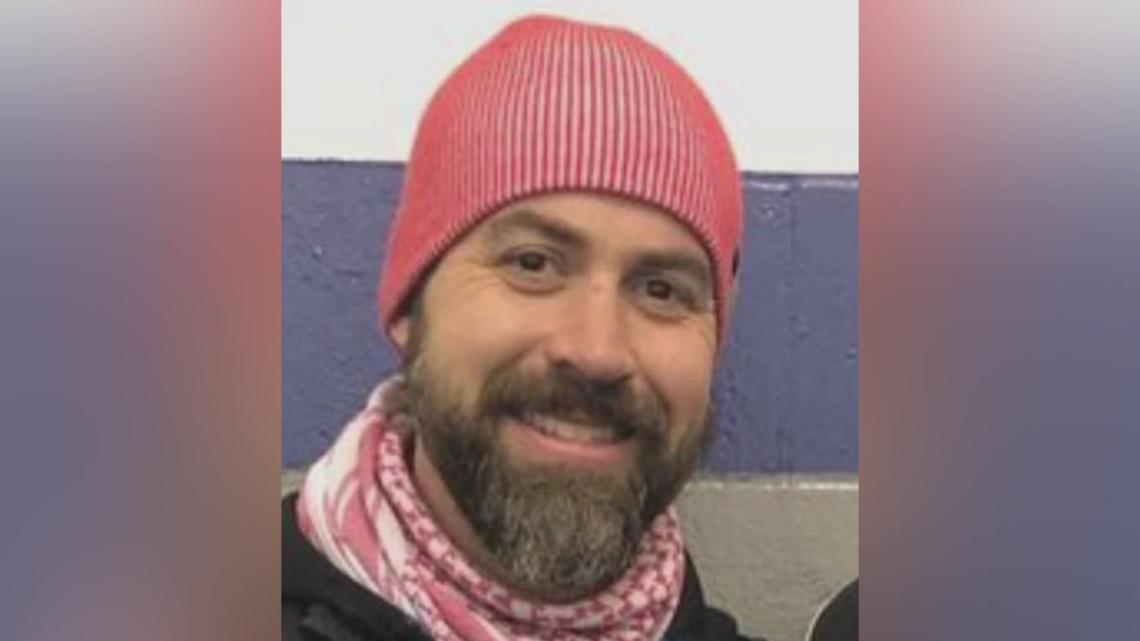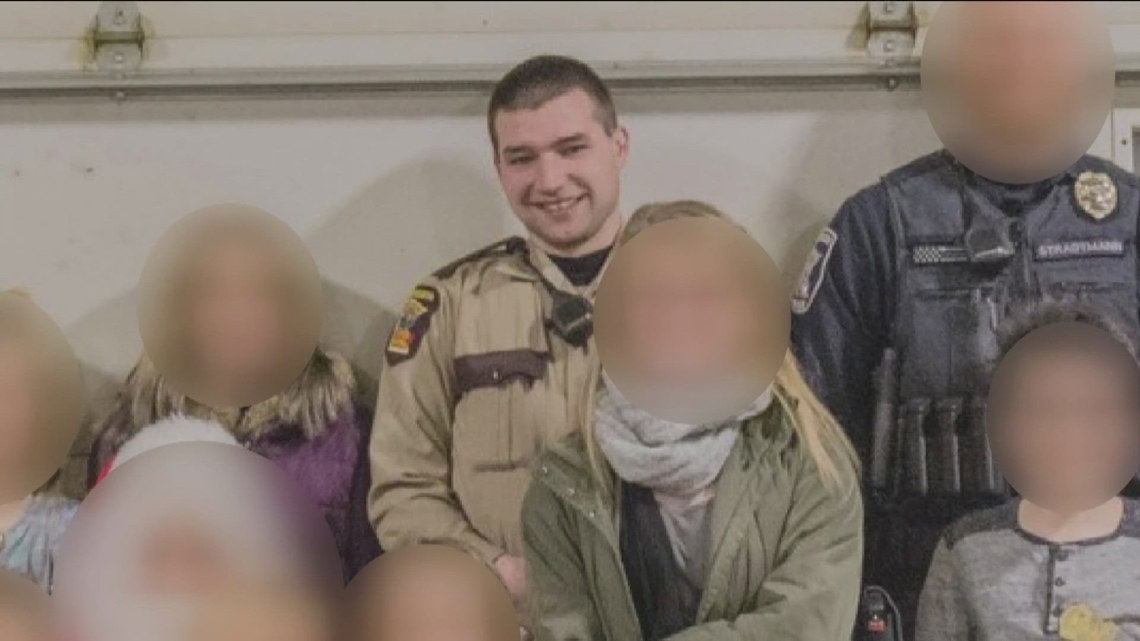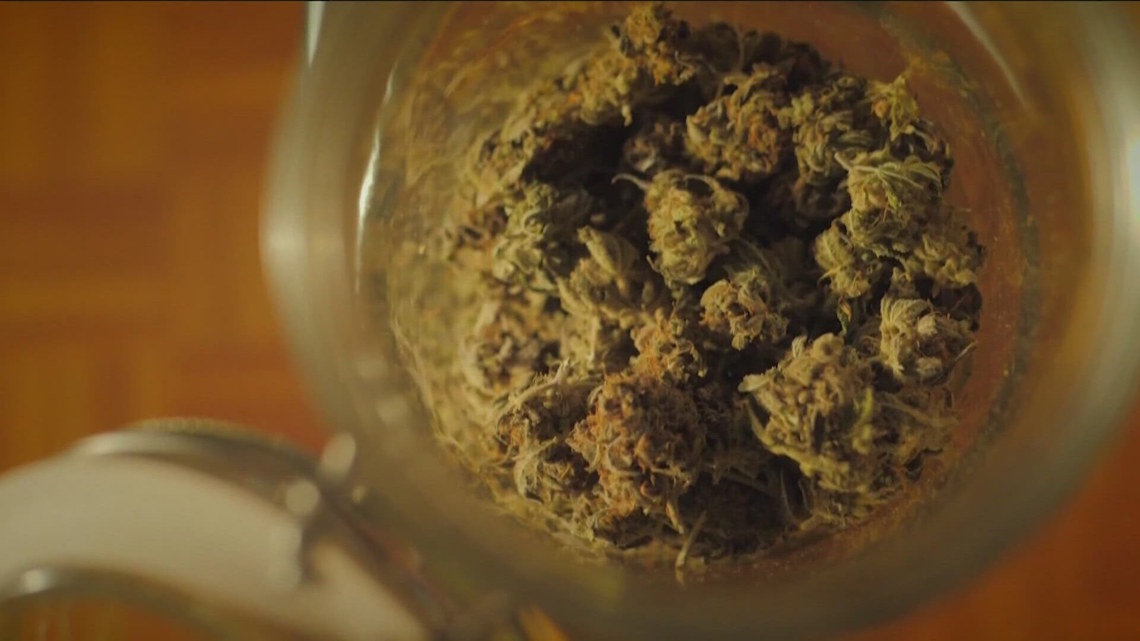Kare11
Teen sentenced to 25.5 years for killing St. Paul coach and dad


Kle Swee received 306 months for shooting Michael Brasel and killing him after breaking into the family car.
ST PAUL, Minn. — Editor’s note: The video above first aired on May 12, 2023
A 17-year-old involved in the shooting death of St. Paul father and community hockey coach Michael Brasel was sentenced Wednesday to 25 and a half years in prison for his role in the crime.
Prosecutors say Kle Swee shot Brasel after the man confronted him and three others while they were breaking into Brasel’s wife’s car in St. Anthony Park on May 6.
Swee previously pled guilty to second-degree intentional murder and agreed to be sentenced as an adult as part of a deal with prosecutors. In turn, the state agreed to drop an additional charge of second-degree unintentional murder while committing a felony.
Investigators say the St. Paul teen and three others were “driving around and stealing from random vehicles” on the morning of May 6. Court documents allege that Brasel surprised them while they were rummaging through his wife’s car and pulled 18-year-old Ta Mla out of his vehicle in an attempt to stop him, according to court documents. Swee fired three shots that hit Brasel and ultimately killed him, according to court statements.
The judge sentenced Swee to 306 months, of which he will serve a minimum of 204 months. Swee will pay $8,800 in restitution to Brasel’s wife Hilary from the wages he will receive while working in prison.
As part of the plea deal, Swee was given credit for 152 days already served.
Swee will turn 18 on Oct. 18. He showed contrition when given the chance to address the courtroom.
“I just want to apologize to the victim’s family to my family, to everyone I impacted. I take full responsibility for my actions. All I ask for is forgiveness,” Swee said. “The time I spend in prison, I want to better myself. Right now I’m currently getting my GED and trying to get my diploma and after that, I want to take college classes and get a job in prison. And when I get released I will be a changed man. When I get released, I want to help young kids not make the same mistakes that I did, that I made, in honor of Michael.”
The defense pushed for a downward departure in the sentencing, arguing that Swee shot Brasel in fear of an attack on his friend Ta Mla. Mla has been charged with aiding and abetting second-degree murder for his role in the crime.
The judge ruled against a downward departure
Michael’s wife Hilary and his two boys – along with numerous friends and family members – gave victim impact statements.
“Michael now only lives in a shiny metal box that we visit every day,” Hilary Brasel said tearfully. “Please honor Michael and sentence the shooter to the maximum time for taking away my best friend and the father of my children.”
Hilary Brasel said the two had been married for almost 18 years after meeting in a high school pottery class. Michael was also a youth hockey coach for his two boys and other kids in the St. Paul area.
“He always gave the best hugs,” Hilary said. “He was the one who could see when someone was having a bad day and turn their frown upside down.”
Moo Ah, the mother of Swee, also wrote a victim statement, which was read by her son’s defense attorney.
“I know my words cannot erase or heal the pain and loss you are experiencing,” Ah wrote. She went on to detail Swee’s childhood and how he had difficulty connecting with other kids due to language and culture differences before falling in with a bad crowd in high school.
“My son in the past few years became addicted to illegal prescription drugs he bought off the street. Before the tragedy, he went to treatment and was able to get free from his addiction. He’s lost friends to overdose and addiction, so he even encouraged other friends to get help for their own drug use in the last year,”
Ah explained that Kle fell in with his old friends in the weeks leading up to the shooting and that she is “devastated by his actions.”
WATCH MORE ON KARE 11+
Download the free KARE 11+ app for Roku, Fire TV, Apple TV and other smart TV platforms to watch more from KARE 11 anytime! The KARE 11+ app includes live streams of all of KARE 11’s newscasts. You’ll also find on-demand replays of newscasts; the latest from KARE 11 Investigates, Breaking the News and the Land of 10,000 Stories; exclusive programs like Verify and HeartThreads; and Minnesota sports talk from our partners at Locked On Minnesota.
Watch the latest local news from the Twin Cities and across Minnesota in our YouTube playlist:
Kare11
Former MN State Trooper Shane Roper, charged with manslaughter, requests case dismissal


The former state trooper is charged with the killing of 18-year-old Olivia Flores.
ROCHESTER, Minn. — Editor’s Note: The above video first aired on 8/26/2024.
The former Minnesota State Patrol trooper charged with the killing of an 18-year-old girl is asking for his case to be dismissed and a change of venue for it to be moved out of Olmstead County.
The former trooper, Shane Roper, and his attorney argue that the “extensive and regional media coverage” jury pools are likely tainted and a fair trial could not be conducted in Olmstead County.
According to a criminal complaint, Roper was driving 83 miles an hour, full throttle with his lights and siren off when he sped through the busy Rochester intersection by the mall and slammed into 18-year-old Olivia Flores.
Records show he’d been suspended twice and reprimanded twice more for similar behavior.
The order from Roper’s attorney also asks the court to preclude the introduction of any evidence related to prior speeding or traffic incidents involving Roper.
Roper and his attorney are asking for charges 1-8 to be dismissed for “lack of probable cause.”
Kare11
‘This doesn’t change anything’ Biden apology for Native American boarding schools draws mixed reaction


For the very first time, a sitting President has apologized for boarding schools that tore Native Americans apart and led to countless cases of abuse and death.
MINNEAPOLIS — During his first presidential visit to Indian Country on Friday, Joe Biden delivered a historic and emphatic apology, acknowledging 150 years of abuse, trauma and death inflicted by Native American boarding schools.
“I formally apologize, as President of the United States of America, for what we did,” Biden said. “It’s one of the most horrific chapters in American history,” said President Biden.
Christine Diindiisi McCleave, former CEO of the National Native American Boarding School Healing Coalition, spent years documenting the stories of boarding school survivors and advocating for justice and accountability by the US leaders.
“My family has two generations of boarding school history that I know of,” McCleave said, during an interview for the KARE 11 Series “Lost History,” which detailed the impact of boarding schools in Minnesota.
During his speech on Friday, President Biden acknowledged the work of the Native American Boarding School Healing Coalition and efforts to better understand the horrors and generational trauma the schools inflicted.
“Generations of Native children stolen, taken away to places they didn’t know,” Biden said. “Children abused emotionally, physically and sexually abused, forced into hard labor, some put up for adoption without the consent of their birth parents. Some left for dead in unmarked graves.”
Christine Diindiisi McCleave: “I struggle with what I’m supposed to say and what I really feel.”
Kent Erdahl: “Why do you say that?”
McCleave: “Well, because today is historic and while I am grateful to see this progress being made. I am also realizing just how short it falls… from real reparations, from real healing.”
She knows she’s not the only one who feels that way. The National Native American Boarding School Healing Coalition surveyed survivors in 2016.
“The thing they wanted the least was an apology because, while it is an acknowledgement, it doesn’t change anything,” McCleave said. “The majority of them said they wanted a truth commission. Trying to find out exactly how many boarding schools existed, how many children went to those boarding schools and how many children died at those schools.”
She says an investigation led by Interior Secretary Deb Haaland, whose grandparents and mother were among those sent to these schools did help better understand that impact, but it only scratched the surface.
“They were only able to investigate the Federal Government’s records,” McCleave said. “Half of these schools were run by churches, of various denominations, and so a truth commission would be able to look into those records as well.”
“Nearly one thousand documented Native child deaths, though the real number is likely to be much, much higher,” Biden said on Friday.
Bills in both the House and the Senate could make that commission a reality, but until that happens, Christine says she can’t ignore the politics of an apology that took place in a swing state, just days before an election.
McCleave: “This apology doesn’t change anything for my mother, who was abused as a child. Of for my grandfather who was a abused at a Catholic Indian Boarding School.”
Erdahl: “Do you hope that this isn’t just an election ploy?”
McCleave: “I hope that this apology actually helps that bill get passed. Native American people are no stranger to being political pawns, so you know what, if this is an election ploy so be it, I hope something good comes out of it.”
Kare11
Hazelden addiction, recovery experts host first cannabis summit


Researchers spoke about increased THC potency and the impact on youth brain development.
ST PAUL, Minn. — Whether purchased from dealer or dispensary, weed has become more potent over the years. In 2022, the federal government reported THC levels more than tripled since 1995.
Hazelden Betty Ford Foundation Graduate School addressed this Friday at its first cannabis summit. Attendees primarily included the nonprofit’s graduate students as well as undergraduate students from nearby universities.
Speakers included researchers from the University of Minnesota, Hamline University, Mitchell Hamline School of Law and others.
Ken C. Winters, is a senior scientist at the Oregon Research Institute’s Minnesota location and a consultant for the University of Iowa’s Native Center for Behavioral Health.
He covered the interplay between youth, cannabis and health.
“It’s not your grandparents’ marijuana these days,” Winters said to the students.
The Hazelden Betty Ford Foundation Graduate school offers a 2-year program, in which students like John Ryan and William Barksdale are earning counseling degrees in substance use and mental health.
“The takeaway would be that you’ve seen potency levels increase quite a bit, and the research is trying to keep pace with that,” Barksdale said.
“As we saw today, marijuana use has gone up in the last couple years such that it’s eclipsed alcohol use in terms of daily users in the United States,” Ryan added. “It’s is much more concerning now because there is such a higher degree of potency that’s available on a wider basis.”
Ryan says it’s especially concerning for youth.
“The subject of the last presentation, which I found quite engaging, was the specific effects on adolescents,” he said. “So, teenagers and people within that young adult range, the 18 to 25-year-olds because that’s generally the period the most brain development takes place. So that’s the area of concern … but it’s still something that I think is being studied and being observed in the first stages of that.”
Kevin Doyle provided opening remarks. He has more than 35 years of experience as a licensed professional counselor. Today, he’s president and CEO of the grad school.
“Potency, dosage, frequency of use, availability, legal cutoffs in terms of age, all those things need to be talked about,” Doyle said. “Adolescent brain development. We know more and more about that every year. Sometimes it seems like every day we learn more about that.”
“How do we as a treatment community need to be prepared to respond?”
The summit comes as Minnesota works to set rules for the cannabis industry after legalizing the drug for recreational use last year. A public comment period is expected later this fall.




GIPHY App Key not set. Please check settings